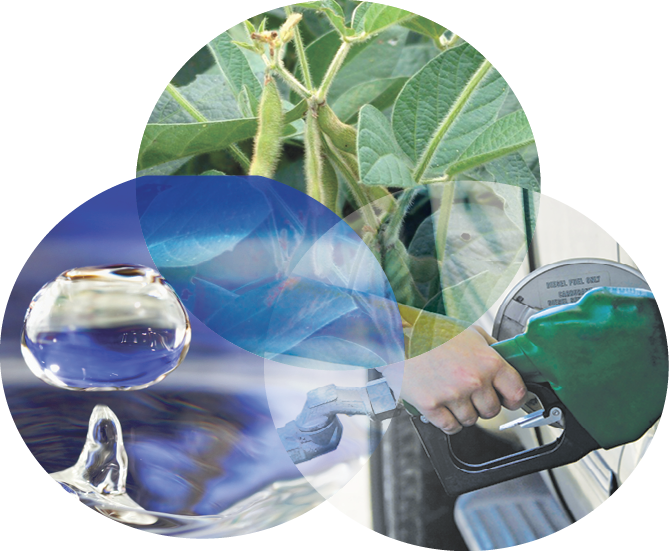DataFEWSion Goals for “Innovations at the Nexus of Food Production, Renewable Energy & Water Quality Systems”

Agriculture occupies the epicenter of the FEW nexus. It is an increasingly energy intensive enterprise, but is also a potential source of energy. Agriculture places large demands on water supplies while poor practices can degrade water quality. This project focuses on the impacts of agricultural practices in the Midwestern US on the interactions of food, energy, and water systems.
Crop and livestock production for food uses water and generates runoff that degrades water quality with implications for public health, water treatment costs, and downstream ecosystems. It also requires energy to power vehicles, maintain livestock habitats, and manage wastes. Renewable energy production from biomass can compete with food production for land and water resources. Management of water supply and quality requires an intricate balance between demand from agriculture and energy for water and other societal and ecosystem needs for water.
Each of these interactions creates opportunities for modeling driven by sensor- based and qualitative data collection to improve the effectiveness of system operation and control in the short term as well as investment s and planning for the long term. However, the large volume and complexity of the data collected creates challenges for visualization, decision support, and stakeholder communication.
The vision of this Traineeship program is to build a community of researchers and prepare professionals who explore, develop and implement effective data-driven models for decision making to efficiently produce food, transform primary energy sources into energy carriers, and enhance water quality.
The goals and associated objectives are:
- Goal 1. Foster interdisciplinary research based on data-intensive methods.
- Increase collaboration between researchers in FEW system domains and those in decision modeling and analytics.
- Expand research that leads to workable, synergistic solutions for food production, renewable energy and clean water in the social, economic and geographic context of Midwest agriculture.
- Goal 2. Educate STEM graduate students for a range of research, research-related and entrepreneurial careers employing data-driven modeling at the FEW nexus.
- Train students in the effective use of systems modeling to understand the interactions among food production, renewable energy generation and water quality along with their business and policy contexts.
- Improve decision science and analytics skills in FEW systems researchers to improve their use of heterogeneous data from biological, hydrological, chemical, thermal, social and economic processes.
- Goal 3. Prepare STEM graduate students to work effectively in multidisciplinary teams, communicate effectively with stakeholders, and identify economically sustainable innovations.
- Develop and test mechanisms and structures for mentoring, social support and team-building that aid retention, productivity and timely degree completion of STEM graduate students.
- Develop and test mechanisms and structures for providing professional and communication skills relevant to careers in academia, government, or industry, including startups.